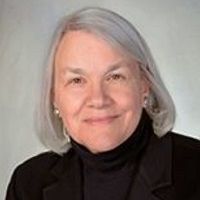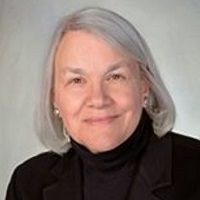Three Overlooked Rewards of Living Longer Lives
Making your retirement savings last multiple decades may be financially daunting, but living to a ripe, old age can be well worth it for individuals, families and the economy.


Profit and prosper with the best of Kiplinger's advice on investing, taxes, retirement, personal finance and much more. Delivered daily. Enter your email in the box and click Sign Me Up.
You are now subscribed
Your newsletter sign-up was successful
Want to add more newsletters?
In the early 1900s, any American over the age of 65 was considered "old." That's understandable because in those days the average life expectancy of U.S. citizens was 47 years. My how things have changed!
Today we define "old" as somewhere north of 90, and by all indications, the definition of old age is going to keep on rising. According to the U.S. Census Bureau projections, by 2050 at least 400,000 of our citizens will be 100 or older. While this is a welcome development and something most of us never imagined, planning for longevity brings a whole new meaning to the idea of creating an "abundant second half."
For many Americans, living really long lives is a double-edged sword. On one hand, the idea of getting more years with the people we love and more time to do the things we enjoy is fantastic. On the other hand, the longer we live, the more money we'll spend; and the more money we spend, the more money we'll need; and the more money we need, the more significant the demands we'll place on our investment portfolios.
From just $107.88 $24.99 for Kiplinger Personal Finance
Become a smarter, better informed investor. Subscribe from just $107.88 $24.99, plus get up to 4 Special Issues

Sign up for Kiplinger’s Free Newsletters
Profit and prosper with the best of expert advice on investing, taxes, retirement, personal finance and more - straight to your e-mail.
Profit and prosper with the best of expert advice - straight to your e-mail.
The quality of our "bonus" years will be directly influenced by the strategy each of us co-creates with our financial advisers, the health care decisions we make, the way we manage our finances and the manner in which we live our lives.
Still, as financially demanding as it can be to plan for a long life, we must remember that it is well worth it. Long life is a gift to each individual. We should also keep in mind some of the less obvious but significant rewards of longevity:
The opportunity to contribute to the economy
In a 2013 white paper titled, The Longevity Economy: Generating Economic Growth and New Opportunities for Business, Oxford Economics coined the term "longevity economy." It's defined as the "sum of all economic activity serving the needs of Americans over 50 and including both the products and services they purchase directly and the further economic activity this spending generates." Oxford Economics anticipates that this segment of the population will increase its contributions to economic activity from $4.6 trillion in direct spending to $13.5 trillion in 2032. But that's not all; the over-50 population contributes $100 billion to charity, representing 70% of all individual contributions. The estimate of economic activity and charitable contributions our aging population is expected to make to the economy dispels the myth that an aging population is a drag on social programs and the economy.
The benefit of sharing wisdom
Wisdom—the sum of our values, knowledge, life experiences and the lessons we've learned from our success and failures—is a by-product of living life and one of the most priceless gifts of longevity. Although intangible, wisdom shapes our lives as we age; it influences everything, from the way we conduct ourselves to our philosophy of life and the values we pass on to our children and grandchildren.
Life is a series of trade-offs, the most significant of which is youth for old age. We don't get to choose whether we make that trade-off. But we do get to choose the way we spend our wisdom—the life-lived dividend we earn as we age—and many of us have chosen to invest our wisdom in our co-workers, our communities and our families.
The positive influence on families
In 1989, 109-year-old Augusta Bunge and the six other generations of her family took their place in the Guinness World Records as the family with the most generations alive at the same time. Augusta was 109, her daughter was 89, her granddaughter was 70, her great-grand daughter was 52, her great-great granddaughter was 33 and her great-great-great granddaughter was 15 when she gave birth to Augusta's great-great-great-great grandson that year.
While few of us would even come close to taking the Guinness World Record away from Augusta, many of us currently share the earth with three or more generations of our own families. According to a 2011 National Institute on Aging, report titled, Global Health and Aging, "there is no historical precedent for a majority of middle-age and older adults having living parents."
Of course longevity increases the possibility that at some point younger family members may be called upon to provide or coordinate care for their elders, but support and caring is not a one-way street. Today it is also common for older family members to help their children by running errands and by providing childcare and regular or situational financial support for younger members of their families.
Finally, it's also important to point out that in our increasingly complicated world, there are immeasurable benefits gained when younger generations share a family history and values with their grandparents or great-grandparents.
Longevity is here to stay! And that's great because it's the ultimate win/win/win for individuals, families and our country.
Related Content
Profit and prosper with the best of Kiplinger's advice on investing, taxes, retirement, personal finance and much more. Delivered daily. Enter your email in the box and click Sign Me Up.

Jan Blakeley Holman is director of advisor education at Thornburg Investment Management. She is responsible for identifying and creating advisor education programs that support financial advisors as they work with their clients and prospects. Jan has spent more than four decades in the financial services industry. Over the course of her career, she’s served as a financial advisor, an advisor to financial advisors and a financial services corporate executive. Visit Thornburg’s website to enjoy more of Jan’s articles and podcasts.
-
 Timeless Trips for Solo Travelers
Timeless Trips for Solo TravelersHow to find a getaway that suits your style.
-
 A Top Vanguard ETF Pick Outperforms on International Strength
A Top Vanguard ETF Pick Outperforms on International StrengthA weakening dollar and lower interest rates lifted international stocks, which was good news for one of our favorite exchange-traded funds.
-
 Is There Such a Thing As a Safe Stock? 17 Safe-Enough Ideas
Is There Such a Thing As a Safe Stock? 17 Safe-Enough IdeasNo stock is completely safe, but we can make educated guesses about which ones are likely to provide smooth sailing.
-
 Missed Your RMD? 4 Ways to Avoid Doing That Again (and Skip the IRS Penalties), From a Financial Planner
Missed Your RMD? 4 Ways to Avoid Doing That Again (and Skip the IRS Penalties), From a Financial PlannerIf you miss your RMDs, you could face a hefty fine. Here are four ways to stay on top of your payments — and on the right side of the IRS.
-
 What Really Happens in the First 30 Days After Someone Dies (and Where Families Get Stuck)
What Really Happens in the First 30 Days After Someone Dies (and Where Families Get Stuck)The administrative requirements following a death move quickly. This is how to ensure your loved ones won't be plunged into chaos during a time of distress.
-
 5 Retirement Myths to Leave Behind (and How to Start Planning for the Reality)
5 Retirement Myths to Leave Behind (and How to Start Planning for the Reality)Separating facts from fiction is an important first step toward building a retirement plan that's grounded in reality and not based on incorrect assumptions.
-
 I'm a Financial Adviser: Silence Is Golden, But It Hurts Your Heirs More Than You Think
I'm a Financial Adviser: Silence Is Golden, But It Hurts Your Heirs More Than You ThinkTalking to heirs about transferring wealth can be overwhelming, but avoiding it now can lead to conflict later. Here's how to start sharing your plans.
-
 Will Your Children's Inheritance Set Them Free or Tie Them Up?
Will Your Children's Inheritance Set Them Free or Tie Them Up?An inheritance can mean extraordinary freedom for your loved ones, but could also cause more harm than good. How can you ensure your family gets it right?
-
 I'm a Financial Adviser: This Is the Real Key to Enjoying Retirement With Confidence
I'm a Financial Adviser: This Is the Real Key to Enjoying Retirement With ConfidenceA resilient retirement plan is a flexible framework that addresses income, health care, taxes and investments. And that means you should review it regularly.
-
 Buy and Hold … or Buy and Hope? It's Time for a Better Retirement Planning Strategy
Buy and Hold … or Buy and Hope? It's Time for a Better Retirement Planning StrategyOnce you're retired, your focus should shift from maximum growth to strategic preservation and purposeful planning to help safeguard your wealth.
-
 Your Legacy Is More Than Your Money: How to Plan for Values, Not Just Valuables
Your Legacy Is More Than Your Money: How to Plan for Values, Not Just ValuablesLegacy planning integrates your values and stories with legal and tax strategies to ensure your influence benefits loved ones and good causes after you're gone.